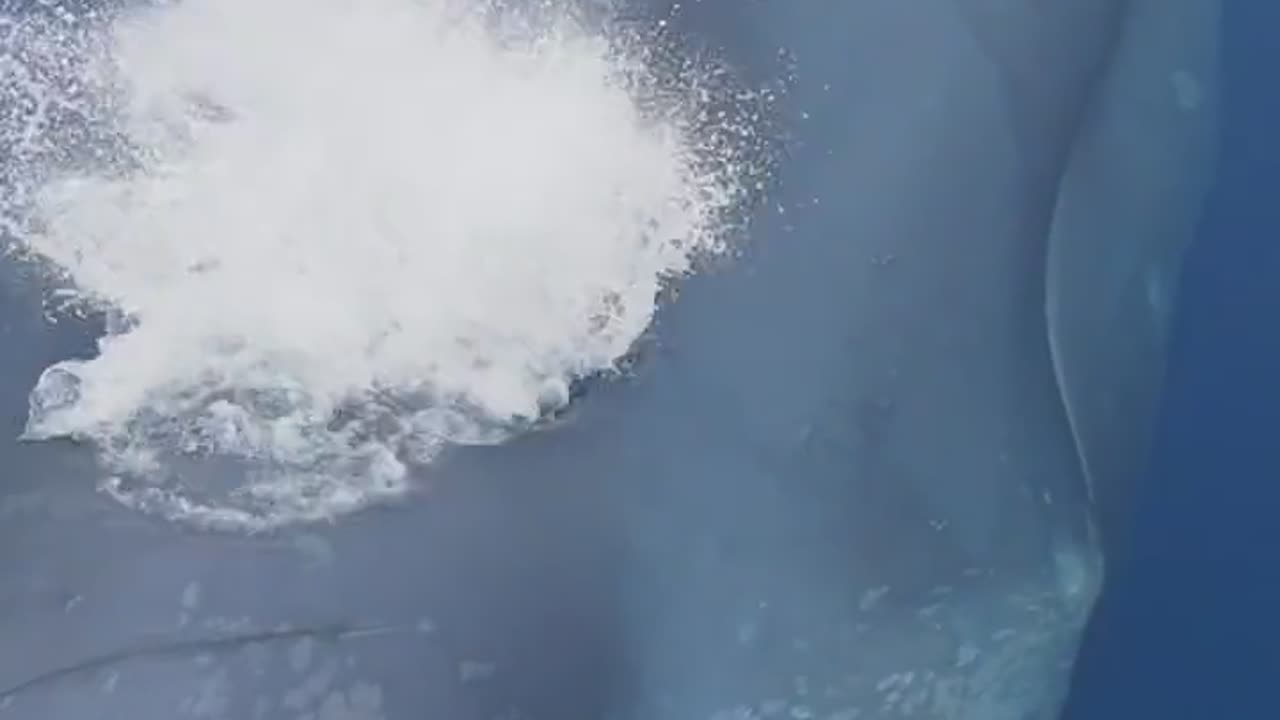Premium Only Content

Whale Unique Respiratory System
The whale has a unique respiratory system that allows it to remain underwater for long periods of time without taking in oxygen
When it rises to the surface of the water, it fills its lungs with fresh air
After each breath, the blowhole is closed by strong muscles so that water does not enter the lungs.
The unique respiratory system of whales is a fascinating adaptation that allows these marine mammals to thrive in their underwater environments. Here's a brief overview:
Blowhole: Whales breathe through a specialized nostril called a blowhole, located on the top of their heads. Unlike most land mammals that breathe through their mouths and noses, whales only breathe through their blowholes.
Lungs: Whales have large, highly efficient lungs that can hold a substantial amount of air. These lungs allow them to take in a sufficient oxygen supply when they surface to breathe.
Diving Abilities: Whales can hold their breath for extended periods. The duration varies among species, with some whales capable of remaining submerged for up to an hour or more. This remarkable breath-holding ability is vital for hunting, escaping predators, and exploring the depths of the ocean.
Blowhole Mechanism: When a whale surfaces, it exhales forcefully through its blowhole, expelling a spout of air and moisture. The moisture in this spout comes from the water droplets in the whale's respiratory system.
Muscular Control: Strong muscles around the blowhole allow whales to open and close it rapidly. After taking a breath, the blowhole is tightly closed to prevent water from entering the respiratory passages.
Countercurrent Exchange: Whales have a countercurrent exchange system in their circulatory system. This mechanism helps conserve oxygen by efficiently distributing it to the vital organs and muscles, even during deep dives when oxygen is scarce.
Myoglobin: Whales have high levels of myoglobin, a protein that stores oxygen in their muscles. This helps sustain their oxygen needs during extended dives.
Slow Heart Rate: While diving, a whale's heart rate can slow significantly to conserve oxygen. This adaptation allows them to make the most of their oxygen supply while submerged.
Overall, the unique respiratory system of whales is a marvel of evolution, enabling these magnificent creatures to thrive in the ocean's depths and emerge at the surface to breathe without taking in seawater.
-
 2:12:46
2:12:46
TheSaltyCracker
6 hours agoLefties Think Elon Stole Election ReeEEeE Stream 11-10-24
197K165 -
 1:16:52
1:16:52
vivafrei
6 hours agoNEW STREAM! Sorry peeps
133K39 -
 5:56:14
5:56:14
SNEAKO
6 hours agoCheesur edate, Jake Shields on election
97.7K -
 39:34
39:34
Nerdrotic
8 hours ago $24.67 earnedAirbursts with Dr Malcolm LeCompte & Giants and Ancient Civilizations with Hugh Newman
91.7K9 -
 1:03:38
1:03:38
vivafrei
15 hours agoElection RECAP! Long-Count Chicanery! FULL Jan. 6 Pardons! Let's Mock Lichtman & MORE! Viva Frei
149K152 -
 LIVE
LIVE
Vigilant News Network
9 hours agoDoctors Drop Post-Election COVID Bombshell | Media Blackout
4,711 watching -
 14:13
14:13
Scammer Payback
12 days agoTelling Scammers Their Address
153K87 -
 5:43:21
5:43:21
Barstool Gambling
13 hours agoBig Cat and Co Sweat Out the Week 10 Sunday Slate | Barstool Gambling Cave
113K3 -
 2:49:36
2:49:36
The Jimmy Dore Show
2 days agoRumble Time Live w/ Jimmy Dore & Special Guests Roseanne Barr, Dr. Drew, Drea de Matteo & More!
577K666 -
 17:17
17:17
DeVory Darkins
1 day agoKamala Post-Election BOMBSHELL Exposes $1 BILLION Campaign DISASTER
102K181